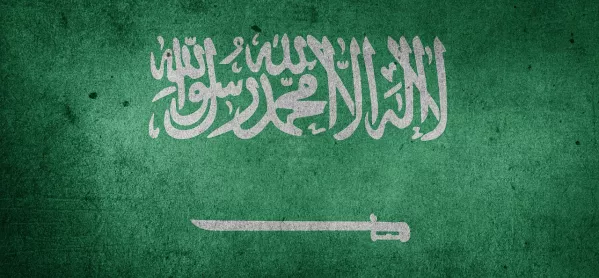- Home
- Colleges split on Saudi Arabian vocational programme
Colleges split on Saudi Arabian vocational programme

Saudi Arabia’s Colleges of Excellence programme was launched, to much fanfare, in 2013 with many UK-based colleges jumping at the opportunity for seemingly lucrative deals in an exotic location.
Indeed, half of the 31 gender-segregated technical colleges so far established (17 female and 14 male) are managed by UK FE establishments.
The kingdom has a young population - half are under the age of 25 - and its leadership has been seeking to diversify its economy by moving away from a reliance on oil. International partnerships also represent something of a PR coup for the Saudi government, which had been striving to change perceptions of the Gulf state until recent events damaged the country’s reputation on the international stage.
The murder of journalist Jamal Khashoggi in the Saudi consulate in Turkey in October has drawn widespread criticism of the country’s leadership. As has a Saudi-led war in neighbouring Yemen, which Unicef says has left more than 22 million people (80 per cent of the population) in dire need of humanitarian assistance.
Despite these recent controversies, most English FE providers are either still operating in the kingdom or keeping quiet about it.
According to research by Tes, one college has stopped working in the kingdom, but has not said why. Meanwhile, one college partnership and a training provider are still working in the country and have renewed their contracts with the Saudi government.
Another partnership, between two English colleges, refused to say if it was still operating in the country while negotiations with the Saudi government are ongoing. The others involved in programmes in the kingdom did not respond to requests for information.
Tes reported that a proposed trip to Saudi Arabia for FE providers interested in joining the Colleges of Excellence programme was planned to take place this spring, but was scrapped by the Department for International Trade after it failed to attract enough interest.
The programme has been beset by problems, including UK FE providers being handed keys to Colleges of Excellence in remote locations that did not have road access, utilities or an internet connection.
What the colleges say
- Nescot (North East Surrey College of Technology) is no longer involved in the scheme. A spokesperson for Nescot said: “Nescot exited the Colleges of Excellence programme in August 2017.”
- A partnership between Burton and South Derbyshire College and Highbury College is still operational in the KSA. A spokesperson for Burton and South Derbyshire College said: “We have already extended our contract in the Colleges of Excellence programme, as we were a wave 1 provider and our contract ended in July 2018.”
- Interserve, one of England’s top 20 FE providers by funding levels, also still operates in the kingdom. A spokesperson for Interserve said: “We deliver a range of vocational training services in the Kingdom of Saudi Arabia. It is a successful operation that delivers high-quality vocational training to young Saudi men and women. We have a professional teaching staff of more than 500 drawn from more than 30 countries and have, over the past three years, built our colleges into modern, high-achieving places of learning and development that are oversubscribed. We teach English, ICT, business studies and a range of technical disciplines with state-of-the-art labs and equipment in our colleges. We then move our students, both male and female, into employment with support from Saudi companies. We are currently in discussion with our Saudi customer regarding the planned reprocurement, as is usual in this type of contract. Our contracts have a range of terms and expiry dates.”
- Lincoln College and Hertfordshire London Colleges (the Saudi trading name of Hertford Regional College and North Hertfordshire College), and The Oxford Partnership (the Saudi trading name of Activate Learning, GEMS Education Solutions and Moulton College) all failed to respond to requests for information.
George Ryan is a FE reporter for Tes
Keep reading for just £1 per month
You've reached your limit of free articles this month. Subscribe for £1 per month for three months and get:
- Unlimited access to all Tes magazine content
- Exclusive subscriber-only stories
- Award-winning email newsletters



